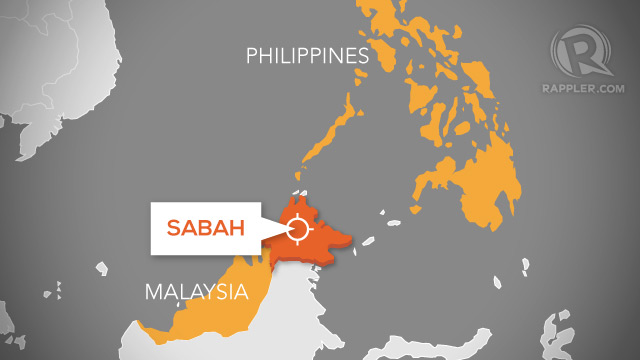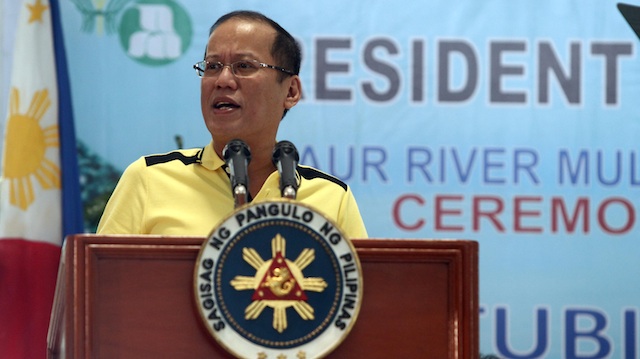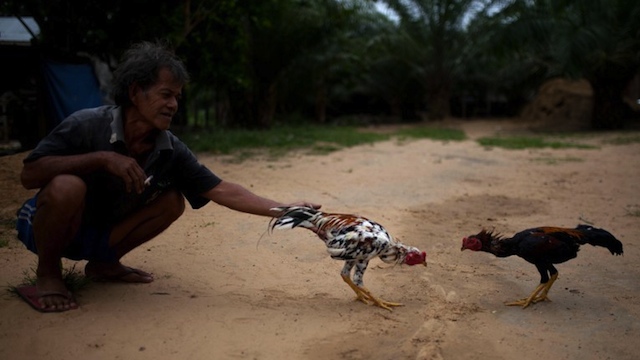SUMMARY
This is AI generated summarization, which may have errors. For context, always refer to the full article.

MANILA, Philippines – Sending armed men to Sabah is not the right way to resolve the Philippines’ historical claim over the Malaysian state formerly part of the Sulu Sultanate, President Benigno Aquino III said on Thursday, February 21.
“Going them with weapons is not the way to resolve this (…) [that way] the other side has just one response,” Aquino told reporters in Iloilo.
Regarding the claim in Sabah, the President stressed that “we have to have first a resolution to the current crisis and later on a long-term solution to this dispute.”
Aquino explained that the government has been talking to all the concerns parties, including the family of the sultan, to “make sure this has a peaceful resolution” before discussing history with Malaysia.
Both Malacañang and the Department of Foreign Affairs (DFA) have consistently assured the public that the claim over Sabah is not a priority now for the Philippines.
Party-list representatives on Tuesday asked the Aquino administration not to pursue the claim given the ongoing territorial dispute with China over the West Philippine Sea.

VP supports gov’t on Sabah
Also on Thursday, Vice President Jejomar Binay Vice President Jejomar C. Binay said that the President is “on top of the situation in Sabah” and urged all to not “second-guess” Aquino.
“The President should be allowed to make decisions without pressure from personalities or groups. He will decide based on what is best for the national interest and the safety of Filipinos in Sabah,” he added.
Binay did however express concern for the hundreds of thousands of Filipinos working — legally and illegally — in Sabah and how the standoff may affect them.
“This is a very delicate issue that needs to be handled with sobriety. We are very much concerned about the safety of Filipinos in Sabah, primarily our OFWs there. For this alone, a peaceful resolution is imperative and that is the goal of our President,” he said.
Between 245,000 and 637,000 Filipinos live in Malaysia, the majority of them undocumented in Sabah, where they work in the palm oil plantations and are constantly threatened by immigration crackdowns.
Apart from the OFWs, the local population in nearby Tawi-Tawi likewise fears a spillover of violence from the tension could affect their livelihood.
(Read: Sabah standoff: ‘Publicity stunt’ and Sabah as the last gold coin)

‘100 years of neglect’ in Sabah
Outside of government, several groups still believe the Philippines should revive the Sabah claim or at least protect the rights of Filipinos who want to live on territory that according to some, is technically still part of the Sultanate of Sulu.
“The people of Sulu who went to Sabah represent the people who took matters unto their hands because the government failed to act on their behalf to protect their claim in Sabah,” Social Watch Philippines (SWP) lead convener Prof Leonor Briones said on Thursday.
In a statement, she accused Malaysia of paying a “pittance” to the Sultan given the current value of the historical lease over the territory.
“What is $1,300 for the Malaysian government that continues to benefit from their occupation of the Sabah territory?,” Briones asked.
The SWP representative explained that the standoff “is the consequence of over a hundred years of neglect” in Sabah, where the Philippine government, she said, “has the duty to protect its own people, in this case, the Sultanate of Sulu on the integrity of their sovereign right” in the area.
Sulu and its sultan once controlled parts of Borneo, including the site of the current standoff between a group of Filipinos and Malaysian security forces.
The heirs of the sultan have been receiving a nominal yearly compensation package from Malaysia under a long-standing agreement for possession of Sabah, a claim that has not been actively pursued by the Philippines since 1964. – with reports from Carlos Santamaria/Rappler.com
Add a comment
How does this make you feel?
There are no comments yet. Add your comment to start the conversation.